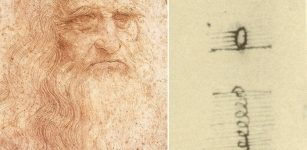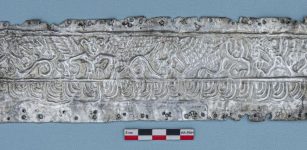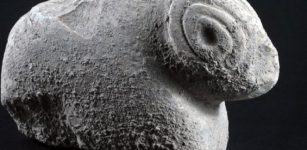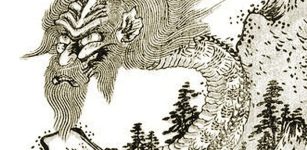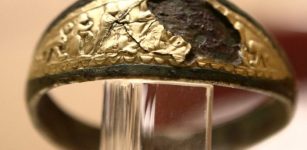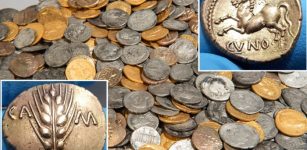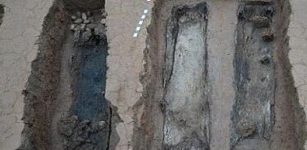Swiss Farmer Discovered Roman Coins Among Cherry Trees
AncientPages.com - A Swiss farmer has discovered more than 4,000 Roman coins, exceptionally well-preserved and with high silver content.
This surprising discovery was made on his cherry plantation and now archaeologists are puzzled.
According to experts, the coins are of Roman origin and astonishingly well preserved. The treasure trove was unearthed in July in Ueken in the northern canton of Aargau, Switzerland.
In a few square meters, researchers unearthed 4166 Roman coins - with a total weight of 15 kilograms.
Canton archaeologist Georg Matter and his team has immediately secured the locality to take a closer look.
"In archeology, rarely more than 2,500 coins are found. This is a whole new category which is almost unique," Matter said.

A Swiss farmer has discovered on his cherry plantation spectacular treasure: more than 4,000 Roman coins, exceptionally well-preserved and with high silver content. Archaeologists are puzzled. Credits: Kantonsarchäologie Aargau.
"We think that the treasure might have belonged to a tradesman or a landowner who lived in the area and put his savings aside for years. And for whatever reason he hid them in this hideout," said Matter.
Some of the coins date from AD 274 and the rule of Emperor Aurelian. The find also included coins from the time of Emperor Maximian in 294.
Among the coins are so-called Antoniniane from the period after 274 AD, imprints of Emperor Aurelian (270-275), Tacitus (275-276), Probus (276-282), Carinus (283-285) Diocletian (284-305) and Maximian (286-305).
The latest coins date back to the year 294 AD.
According to coin expert Hugo Doppler, the coins were in such good condition that it was clear they "were taken out of circulation right after they were minted."
Why did the owner never retrieve the bronze and silver fortune?
Ancientpages.com
source: Der Spiegel





